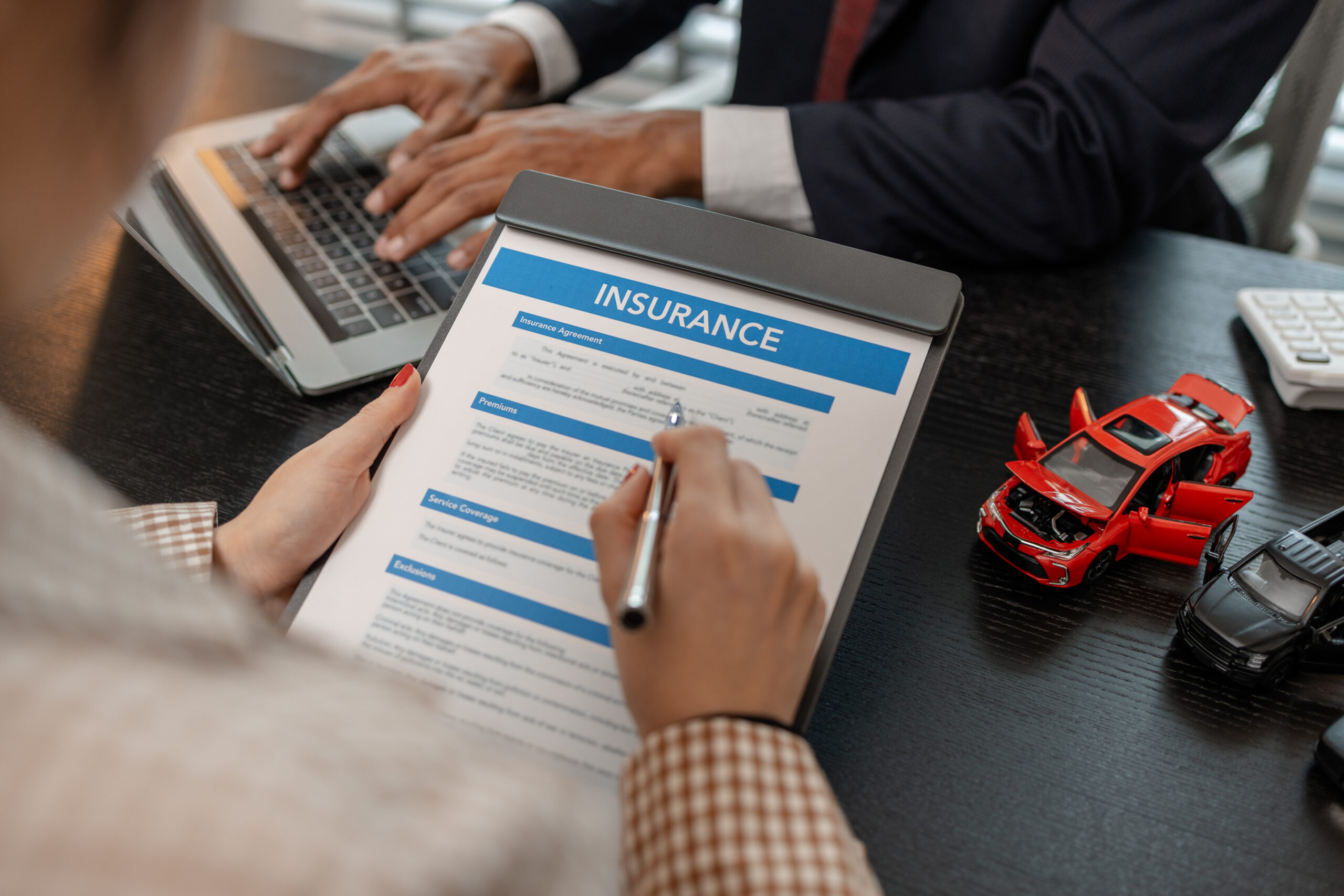Auto Insurance Myths
Car insurance can be confusing, and many drivers rely on assumptions that are not always accurate. Car insurance myths often lead people to believe they are fully protected after a crash, only to discover unexpected gaps in coverage when they need it most. Understanding how auto insurance actually works is essential for protecting yourself financially and avoiding costly surprises after an accident. For example, a common misconception is that the color of your car affects your insurance rates, but the color of your car does not determine your insurance premium. Let’s break down a few persistent car insurance myths that catch drivers off guard.
Myth 1: “If someone hits me, their insurance pays for everything.”
Not always. In at-fault states, yes, generally the driver who caused the crash is responsible for damages. But what if they’re uninsured? Or underinsured?
According to the Insurance Research Council, about 1 in 8 drivers in the U.S. is uninsured. In Mississippi, that number is even higher, over 29.4% of drivers lack coverage. If you don’t carry uninsured or underinsured motorist (UM/UIM) coverage, you could be stuck paying for repairs, medical bills, or both.
It’s also important to understand how primary insurance works if someone else drives your car and gets into an accident. In most states, the auto insurance policy covering the vehicle is considered the primary insurance, regardless of who was driving at the time. This means your car owner’s insurance company is typically responsible for covering damages, not the driver’s own policy. If another person drives your car and gets into an accident, your insurance is usually the primary coverage that applies.
Myth 2: “Full coverage means everything is covered.” (Comprehensive and Collision Coverage Explained)
“Full coverage” isn’t a specific policy. It typically refers to a combination of liability, collision, and comprehensive insurance. However, comprehensive and collision coverage are optional coverages that protect against different types of damage. Collision coverage pays for damage to your vehicle if you hit another car or object, regardless of fault. Comprehensive coverage protects your car if it is stolen, vandalized, or damaged by events like falling tree limbs, hail, flood, or fire. Insurance will cover these types of damages, such as when your car is stolen, vandalized, or harmed by tree limbs, hail, flood, or fire, only if you have comprehensive coverage. These coverages are often required by lenders but are not automatically included in every policy. Standard auto insurance does not cover personal items stolen from your vehicle; those are typically covered by homeowners or renters insurance.
But it still doesn’t include rental car reimbursement, roadside assistance, or medical payments, unless you add them.
Myth 3: “My insurance will pay off my car loan if it’s totaled.”
Only if you have gap insurance. Without it, you’re paid the actual cash value (ACV) of the car at the time of the crash, not what you still owe. If your car is underwater, meaning you owe more than it’s worth, you’re responsible for the difference. Considering gap insurance is especially important for financed vehicles, as it covers the gap between the car’s ACV and your remaining loan balance if the car is totaled. Insurers pay only the actual cash value, so without gap insurance, you may have to pay out of pocket for any outstanding loan balance. Additionally, removing collision coverage from a low-value vehicle can leave you without funds to replace your car if it is totaled, since comprehensive and collision coverage are necessary to fully protect your vehicle from various damages.
Understanding Coverage Limits
Almost every state has auto liability insurance required by law, meaning you must carry at least a minimum amount of auto liability insurance to drive legally. However, these state-mandated minimum coverage levels are often low, leaving drivers at risk of significant expenses in serious accidents. Every policy has a limit, which is the maximum your insurer will pay out. If your medical bills or other losses exceed your bodily injury protection or auto liability coverage limit, you’re responsible for the rest out of pocket. Many drivers carry only the minimum amount of auto liability coverage required by law, but buying only the minimum amount of liability means you are likely to pay more out of pocket for losses incurred after an accident. The minimum amount of auto liability coverage may not be enough to cover the amount of auto liability you could face in a major crash.
For example, in Utah, the minimum bodily injury liability coverage is $25,000 per person and $65,000 per accident. That won’t go far in a serious crash with multiple injuries. A single ER visit can run thousands of dollars. Surgery can cost tens of thousands. You could be sued for the rest if you’re at fault and underinsured.
Consumer groups and the insurance industry generally recommend purchasing higher coverage limits than the legal minimum, especially if you have substantial personal financial assets to protect. Bodily injury protection is a crucial part of liability coverage, helping to prevent significant out of pocket expenses after an accident. Regularly reviewing your insurance policy limits is important to ensure they cover current vehicle values, especially as repair costs rise.
Insurance costs, including your insurance premium and auto insurance premium, are determined by many factors such as your car’s sticker price, safety record, overall safety record, insurance rates, and potential medical expenses. Insurance costs can be lower for newer cars equipped with advanced safety features compared to older models with poor crash ratings. The price of your auto policy is also based on factors like car make, model, body type, engine size, and the age of the vehicle. Insurers take into account the age, driving record, and sometimes the credit history of the driver when determining insurance costs.
When Your Insurance Might Deny a Claim
Even if you pay your premiums on time, insurance companies may still deny your claim. Here’s when that might happen:
- You missed a filing deadline. Most insurers require you to report an accident within a set number of days. Miss that window and you might be out of luck.
- You were using your car for business. Personal auto insurance typically does not cover business purposes. If you use your car for business activities, such as food delivery or rideshare, your personal auto insurance may not cover business use unless you have specific add-on coverage. To ensure proper protection, it is important to purchase business vehicle insurance, as personal policies rarely cover business use. Always consult your insurance agent to verify if your auto policy covers business activities or if you need to purchase business vehicle insurance.
- You failed to disclose drivers. If someone not listed on your policy crashes your car, your insurer might reject the claim or reduce payout.
- They allege fraud or misrepresentation. If there are inconsistencies in your story or you omitted details during your application, like previous accidents, your claim could be challenged.
Insurers don’t always play fair. They’re businesses. Their priority is minimizing payouts, not protecting you.
Tips for Maximizing Your Claim
After a car accident, your actions in the hours, days, and weeks that follow can make or break your insurance claim. Auto insurance companies and your insurance carrier often look for reasons to reduce payouts or deny claims entirely, regardless of fault. In some states, even not at fault accidents can negatively affect your insurance score and future pricing. The more prepared you are, the stronger your position. Here’s how to protect your right to fair compensation and get the most out of your car insurance coverage after an accident:
1. Document Everything Thoroughly
Right at the scene, gather as much evidence as possible:
- Take clear photos and videos of all vehicle damage, license plates, road conditions, skid marks, traffic signs, and any visible injuries.
- Record the exact time and location of the crash.
- Gather contact information from witnesses. Ask them to write down or text you a brief statement if possible.
- Exchange insurance details with the other driver, but avoid discussing fault.
- Later, keep a file with receipts, estimates, and all accident-related paperwork. Include dates of medical visits, prescriptions, and any out of pocket expenses.
2. Request and Review the Police Report
Ask responding officers how to obtain a copy of the official accident report. This document is critical:
- It provides an unbiased account of what happened.
- It may include fault assessments, citations, and witness statements.
Insurers use this report to verify your version of events. Read it carefully. If it contains errors or missing details, you can request a correction or file a supplemental statement.
3. Get Medical Treatment Immediately
Do not wait to see how you feel. Delayed treatment can raise red flags and hurt your claim.
- Visit an emergency room, urgent care, or your doctor as soon as possible.
- Follow all medical advice and attend every follow up appointment.
- Ask for written summaries after each visit to track your diagnosis, treatment plan, and recovery progress.
Gaps in care can be used by insurers to argue that your injuries weren’t serious or were unrelated to the crash.
4. Be Cautious With Insurance Adjusters
Insurance adjusters may seem helpful, but their job is to limit payouts.
- Don’t admit fault or speculate about what caused the crash.
- Avoid providing a recorded statement without legal advice. Anything you say can be used to deny or minimize your claim.
- Never downplay your injuries. Be factual, not emotional, when describing symptoms.
- Stick to the facts and keep your answers short. You’re not obligated to give a detailed narrative without representation.
5. Track All Financial Losses
Accidents affect more than your car and health. Track the full financial impact:
- Document missed workdays and lost income with pay stubs, employer notes, or tax records.
- Include lost bonuses, freelance gigs, or reduced hours.
- Note changes to your job responsibilities or ability to work in the same role.
- You may also be entitled to compensation for future lost wages or reduced earning potential if your injuries are long term.
6. Understand What Your Policy Actually Covers
Don’t assume your insurer will explain all your benefits.
- Regularly review your auto insurance policy and insurance policy declarations page to see what types of coverage you have: liability, medical payments, collision, comprehensive, rental reimbursement, and uninsured motorist. Understanding the details of your auto insurance policy is essential to ensure you have the right protection and to avoid falling for common car insurance myths.
- Know your coverage limits and deductibles.
- Understand which claims may raise your premium or trigger coverage exclusions.
- If you’re unsure about the terms, speak with a lawyer or insurance expert. Many claims are underpaid simply because policyholders don’t know what to ask for.
7. Keep a Post-Accident Journal
Start a daily log to track how your injuries affect your life. This can include:
- Pain levels, mobility limitations, or emotional distress.
- Missed events or activities you can no longer enjoy.
- How your injuries impact your sleep, relationships, or daily routines.
This helps demonstrate non economic damages like pain and suffering, which are harder to quantify but still compensable.
8. Talk to a Personal Injury Attorney Early
The sooner you get legal advice, the stronger your claim can be. A lawyer can deal with insurers on your behalf, help you avoid common mistakes, car insurance myths, and negotiate for a full and fair settlement that includes all your losses. If your case involves complex liability, disputed injuries, or a denied claim, an attorney can make a significant difference in outcome and timing.
Why Legal Help Might Be Necessary
Insurance companies have experienced adjusters and legal teams. You should too. After a crash, you may face denied claims, lowball settlement offers, or confusing policy language. A personal injury lawyer can level the playing field, negotiate on your behalf, and pursue full compensation, especially if you were seriously injured.
At Lowe Law Group, we handle insurance disputes every day and can bust any car insurance myth you may have been told. We know how to challenge unfair denials, push back against low offers, and make sure your rights are protected. If your accident involved complex liability issues or an uninsured driver, having a legal advocate can make a significant financial difference. We’ll also explain when legal help makes a real difference and how Lowe Law Group can support your claim. You might think your car insurance has your back after a crash. But here’s the truth: most drivers don’t actually know what their policy covers. If you’ve never looked closely at your policy until after a wreck, you’re not alone. But misinformation could cost you if you believe these common car insurance myths.






